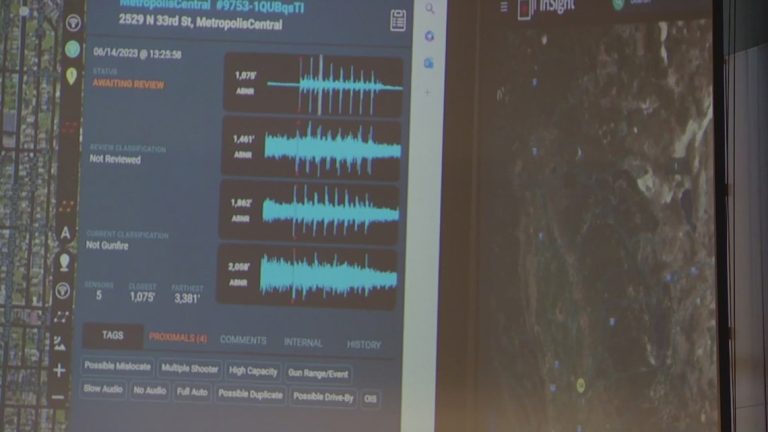Common concerns about the technology include over-policing of predominantly black and brown communities and whether it is actually effective.
TACOMA, Wash. — The first of two community meetings regarding the Tacoma Police Department's upcoming pilot of controversial “ShotSpotter” gunshot detection technology will be held Wednesday evening.
ShotSpotter, developed by SoundThinking, a self-described “public safety technology company,” uses acoustic sensors to detect gunfire and help police more precisely pinpoint where the sound came from. An information page on the City of Tacoma's website says the technology can help police improve their response rate to active shooter incidents, reduce crime scene response times, and find “critical evidence to identify and investigate suspects.”
According to the city, ShotSpotter is also being used in 150 locations across the country.
Further north, in Seattle, Mayor Bruce Harrell has been pushing for the technology since last year, but ultimately cut funding for a pilot from the city's public safety budget. The Seattle City Council voted against spending more than $1 million to pilot ShotSpotter, saying it “could reduce police response times, exacerbate racial discrimination, and infringe on civil liberties.”
In citizen feedback sessions, people consistently raised concerns about the accuracy of the technology and how it could lead to over-policing of predominantly Black and brown communities.
SoundThinking counters that its technology gives police a more accurate starting point for investigating gunfire, eliminating the need to search entire blocks or neighborhoods when responding to calls of shots fired.
TPD has signed a three-year pilot agreement with the company, and data on the use of the technology will be reviewed periodically by the Tacoma City Council. The acoustic sensors will be installed in a two-square mile area in Tacoma's Hosmer neighborhood, an area identified from data collected during the implementation of Police Chief Avery Moore's Violent Crime Reduction Plan.
After a three-year pilot program, Dr. Jessica Huff from the University of Cincinnati will present an academic overview and evaluation of the successes and failures of the ShotSpotter technology.
The community meeting begins Wednesday at 6 p.m.

